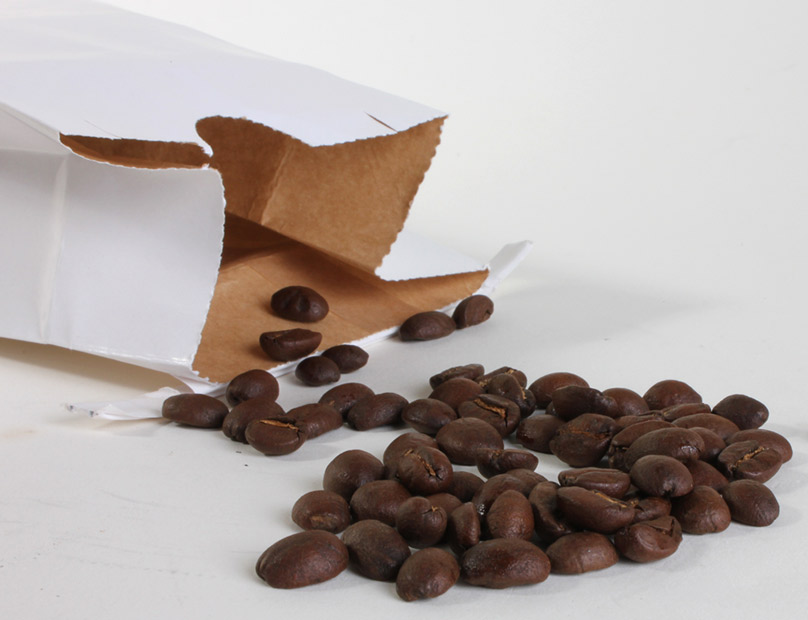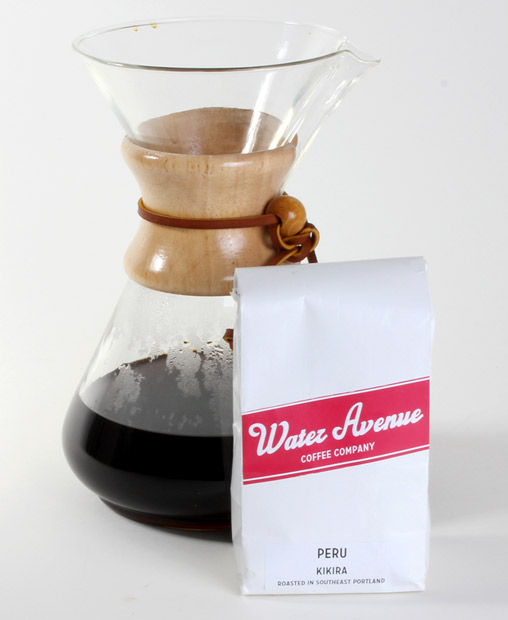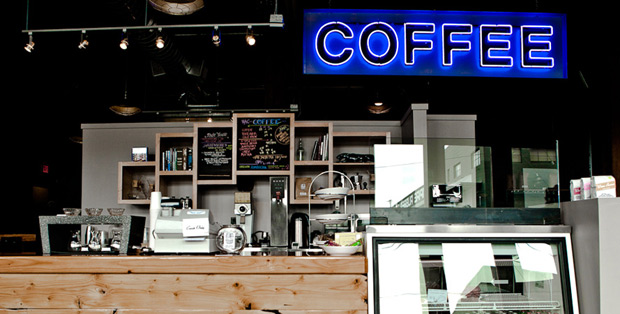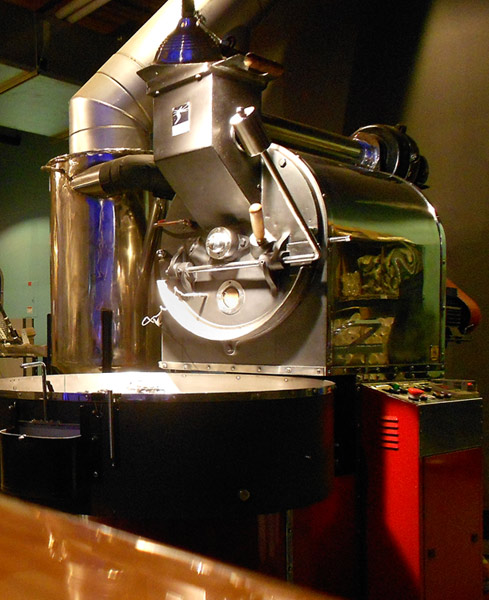Water Avenue Coffee
Southeast Portland’s micro roaster and bean-to-beer experimenter



Portland has developed quite a name for itself over the years as a hub for coffee innovation. Whether it boils down to exotic beans, an experienced roaster, the espresso machine or the whole package, each boutique that opens up has a fresh spin on coffee that goes beyond gimmicks and instead delves into absolute coffee nerdery. One of the more recent shops to open up in Portland’s Southeast Industrial area is Water Avenue Coffee (WAC), a casual cafe serving up brews at its 50-foot long bar built from century-old reclaimed fir.
WAC is the brainchild of Barista Exchange founder Matt Milletto and former Stumptown roaster Brandon Smyth. Using their respective knowledge, the duo has created a coffee roasting plant and full-service bar that’s as experimental as it is straightforward. After tasting WAC for ourselves, we checked in with Smyth to learn more about what makes this Portland outpost so unique. You can also snag a bag online or at their shop.

What kind of roaster do you use at WAC?
I roast on a slightly modified 1974 SASA Samiac 20-kilo coffee roaster built in France. What makes these machines unique and sought after is they were handmade at the time, and customized for the purchaser. The one at Water Avenue was constructed for a lefty who evidently loved fire engine red. They also sport dedicated motors for the cooling tray, tray agitator and exhaust. So, with the addition of a Variable Frequency Drive to the exhaust motor, the roaster can have complete control over the airflow during the roast. This is a huge advantage for a micro-roaster like us with delicate and unusual coffee cultivars with vastly different flavor profiles and seed density. Changing the airspeed during certain times while roasting can bring out sweetness, acidity, or produce a super clean cup. For espresso roasts I can slow down the airspeed, creating a very sweet, balanced roasts perfect for shots, or speed it up to bring out the lemongrass notes in an Ethiopian single origin. We are stoked to have this 1,700-lb Frenchman as a part of our daily operation.

From where do you source your beans?
The beans are sourced through a nearby importer or, ideally, directly from the farmer. I’m heading to El Salvador in a couple of weeks to purchase some coffee for next year from some amazing farms: Finca Manzano, run by Emilio López Díaz, champions experimentation with production to create coffee that gets better with every crop, and Fincas de la Familia Menendez that grows the insanely delicious Pacamara hybrid varietal on the upper slopes of their Las Delicias farm. That Pacamara has consistently been my favorite coffee since I first sampled it, and we are really excited to bring in WAC’s own lot for 2012.
WAC is also sporting new, custom Tyvek bags that are 100% paper, compostable, tear-proof, watertight, reusable, and most importantly, white. We are dorking out over them and they are inspiring excitement with our design and engineering regulars.
You’re brewing a Northwest Pale Ale from coffee beans?
We have had a lot of success with our Oak Barrel Aged Sumatra experiments, and are planning on expanding our R&D super lab to tackle some other uncharted territory—like how to brew a real coffee beer. Not a Porter or Stout, but a bright, clean, Northwest Pale Ale. We are currently in the development phase, and enjoying the process immensely.
What does this process involve? What are some of the challenges it brings when compared to brewing coffee?
This process involves a huge amount of experimentation to get right. Right now we have been focusing on the synergism of a lighter roasted coffee with the bitterness of a pale ale. To date, this hasn’t worked well, but we are experimenting with roast levels and the timing of introducing the coffee into the mix. The biggest hurdle to overcome is how to find a coffee varietal at a specific roast level that will not overtake or compete with the flavors already present in the ale. We want the acidity and floral notes in the coffee to shine without becoming too astringent or not complimenting the already flowery nature of the hops.
It has been a real fun experiment thus far, but we haven’t had many batches come out worth celebrating over. It will take a while to get this right, and perhaps it is a doomed venture, but it is something that when perfected Portland will embrace wholeheartedly. This city loves exciting, daring flavors, and its three loves—children, coffee and beer.











